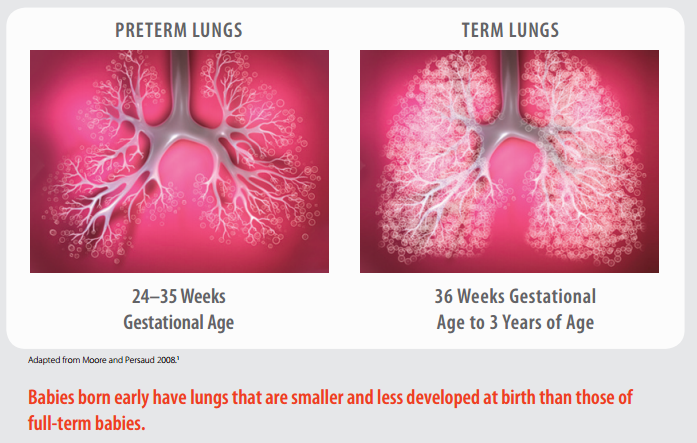
Table of Contents
Introduction
As a new parent, one of the most important things you want to know is when your baby’s brain and lungs are fully developed. It is natural to feel concerned about your baby’s growth and development, and it is essential to get accurate information to ensure your baby’s health and well-being.In this article, we will look at when a baby’s brain and lungs are fully developed, what factors affect their development, and what you can do to support your baby’s growth.
When Are A Babies Brain and Lungs Fully Developed?
A baby’s brain and lungs are two critical organs that develop during pregnancy and after birth. While there is no set timeline for when a baby’s brain and lungs are fully developed, there are some general guidelines that can help you understand what to expect.Brain Development: A baby’s brain starts to develop shortly after conception, and it continues to grow throughout pregnancy and the first few years of life. By the time a baby is born, their brain is about 25% of its adult size. The most significant period of brain development occurs during the first three years of life, and the brain reaches 90% of its adult size by age five. However, brain development continues throughout adolescence and into early adulthood.Lung Development: Lung development is also a continuous process that starts during pregnancy and continues throughout childhood. A baby’s lungs begin to develop at around four weeks of pregnancy, and by the end of the first trimester, the basic structures of the lungs are in place.By the time a baby is born, their lungs are fully formed, but they are not yet mature. The lungs continue to develop during the first few years of life, and they reach full maturity by the age of eight.
Factors That Affect Brain and Lung Development
Several factors can affect a baby’s brain and lung development, including genetics, nutrition, and environmental factors.Genetics: Genetics plays a significant role in a baby’s brain and lung development. Some babies may be born with genetic conditions that affect their brain or lung development, such as Down syndrome or cystic fibrosis.Nutrition: A baby’s nutrition is essential for their brain and lung development. A diet rich in nutrients such as omega-3 fatty acids, iron, and folate can support healthy brain development. Additionally, breastfeeding can provide a baby with the necessary nutrients to support their lung development.Environmental Factors: Environmental factors such as exposure to toxins, pollution, and stress can also affect a baby’s brain and lung development. It is essential to create a safe and healthy environment for your baby to support their growth and development.
What Can You Do To Support Your Baby’s Growth?
There are several things you can do to support your baby’s brain and lung development, including:1. Provide a Healthy Diet: A healthy diet that is rich in nutrients such as omega-3 fatty acids, iron, and folate can support your baby’s brain and lung development. Additionally, breastfeeding can provide your baby with the necessary nutrients to support their lung development.2. Create a Safe and Healthy Environment: Creating a safe and healthy environment for your baby is essential for their growth and development. This includes avoiding exposure to toxins, pollution, and secondhand smoke.3. Encourage Physical Activity: Physical activity is essential for your baby’s brain and lung development. Encourage your baby to crawl, walk, and play to support their physical and cognitive development.4. Read and Talk to Your Baby: Reading and talking to your baby can support their language development and cognitive skills. It is never too early to start reading to your baby and engaging them in conversation.5. Seek Professional Help If Needed: If you have concerns about your baby’s growth and development, it is essential to seek professional help. Your pediatrician can provide guidance and support to ensure your baby’s health and well-being.
Frequently Asked Questions
Q: When do babies start to develop their brain and lungs?A: A baby’s brain and lungs start to develop shortly after conception and continue to grow throughout pregnancy and the first few years of life.Q: When are a baby’s brain and lungs fully developed?A: While there is no set timeline for when a baby’s brain and lungs are fully developed, the brain reaches 90% of its adult size by age five, and the lungs reach full maturity by the age of eight.Q: What factors can affect a baby’s brain and lung development?A: Genetics, nutrition, and environmental factors can all affect a baby’s brain and lung development.Q: What can I do to support my baby’s brain and lung development?A: Providing a healthy diet, creating a safe and healthy environment, encouraging physical activity, reading and talking to your baby, and seeking professional help if needed can all support your baby’s brain and lung development.Q: What should I do if I have concerns about my baby’s growth and development?A: If you have concerns about your baby’s growth and development, it is essential to seek professional help. Your pediatrician can provide guidance and support to ensure your baby’s health and well-being.In conclusion, a baby’s brain and lungs are two critical organs that continue to develop throughout pregnancy and the first few years of life. While there is no set timeline for when a baby’s brain and lungs are fully developed, there are several things you can do to support your baby’s growth and development. By providing a healthy diet, creating a safe and healthy environment, encouraging physical activity, reading and talking to your baby, and seeking professional help if needed, you can ensure your baby’s health and well-being.
